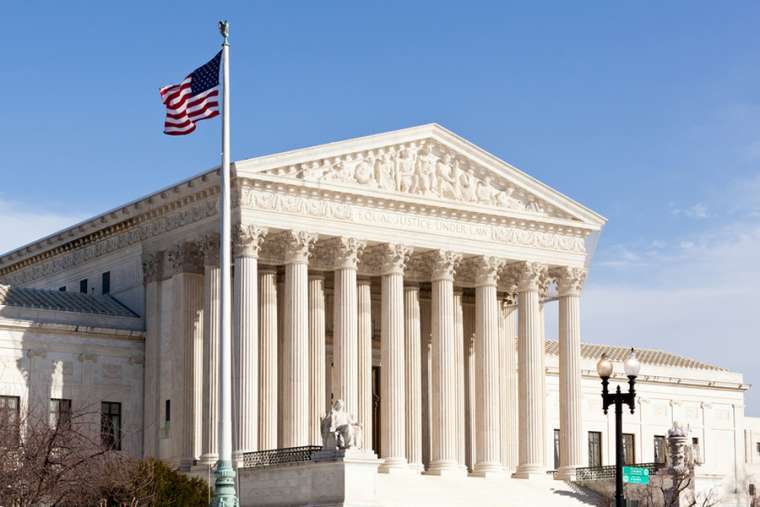WASHINGTON (BP) – The U.S. Supreme Court narrowly upheld June 30 a state tax credit scholarship program that includes religious schools, thereby maintaining its recent support of the right of faith groups to participate in government programs.
The high court voted 5-4 to overturn a Montana Supreme Court decision that invalidated a state program that provides a tax credit of up to $150 for a donation to a Student Scholarship Organization (SSO). Contributions to SSOs finance scholarships given to families for student tuition at private schools of their choosing. The program approved by the state legislature includes Christian and other religious schools.
The Montana high court invalidated the entire program in a 2018 opinion because the law includes religious schools. In overturning a lower court decision, the Montana justices said the plan violates the state constitution’s “no-aid provision” regarding religious schools.
That prohibition is one of many Blaine Amendments enacted in the 19th Century that discriminated against Catholics and have been used against school-choice programs, according to the Institute for Justice, which argued in behalf of the program before the federal high court. Blaine Amendments – named after a U.S. senator who introduced a similar federal amendment – exist in 37 states, according to the institute.
Religious freedom advocates widely applauded the court’s ruling.
The Southern Baptist, father-and-son law team of Michael and Jonathan Whitehead – co-counsels for significant Trinity Lutheran case who practice in the Kansas City area – praised the high court’s new ruling as “another victory for the principle of equal access” for religious individuals and institutions.
“Parental choice in education is vitally important to the future of America,” they said in a written comment. “Free exercise of religion in making school choice decisions is becoming increasingly important to many parents and grandparents as their children face increasingly hostile world views promoted by many public schools and colleges. Today’s decision by Chief Justice Roberts is a cause for thanksgiving, that our Courts still recognize God’s gift of religious liberty.”
Writing for the majority, Chief Justice John Roberts said the Montana high court’s decision violated the First Amendment clause that guarantees the free exercise of religion.
“The Free Exercise Clause protects against even ‘indirect coercion,’ and a State ‘punishe[s] the free exercise of religion’ by disqualifying the religious from government aid as Montana did here,” Roberts wrote. “The no-aid provisions of the 19th century hardly evince a tradition that should inform our understanding of the Free Exercise Clause.
“A State need not subsidize private education. But once a State decides to do so, it cannot disqualify some private schools solely because they are religious.”
In support of the court’s ruling, Roberts invoked a 2017 decision that defended the right of religious bodies to participate in government programs. In that decision, the high court ruled in a 7-2 opinion the state of Missouri violated the right of Trinity Lutheran Church of Columbia to exercise its faith freely by barring it from participating in a government-run, playground-resurfacing program.
The Trinity Lutheran decision came to “the ‘unremarkable’ conclusion that disqualifying otherwise eligible recipients from a public benefit ‘solely because of their religious character’ imposes ‘a penalty on the free exercise of religion that triggers the most exacting scrutiny,'” Roberts wrote. “The Montana Constitution discriminates based on religious status just like the Missouri policy in Trinity Lutheran, which excluded organizations ‘owned or controlled by a church, sect, or other religious entity.'”
Joining Roberts in the majority were the associate justices who generally make up the high court’s conservative wing: Clarence Thomas; Samuel Alito; Neil Gorsuch; and Brett Kavanaugh.
In a concurring opinion, Thomas said the Supreme Court still needs to address its interpretation of the First Amendment clause prohibiting government establishment of religion, because it “continues to hamper free exercise rights.” The justices’ “overly expansive understanding of the [Establishment Clause] has led to a correspondingly cramped interpretation of the [Free Exercise Clause],” he wrote.
The high court’s liberal wing – Associate Justices Ruth Bader Ginsburg, Stephen Breyer, Sonia Sotomayor and Elena Kagan – dissented.
The ruling came in Espinoza v. Montana Department of Revenue.

